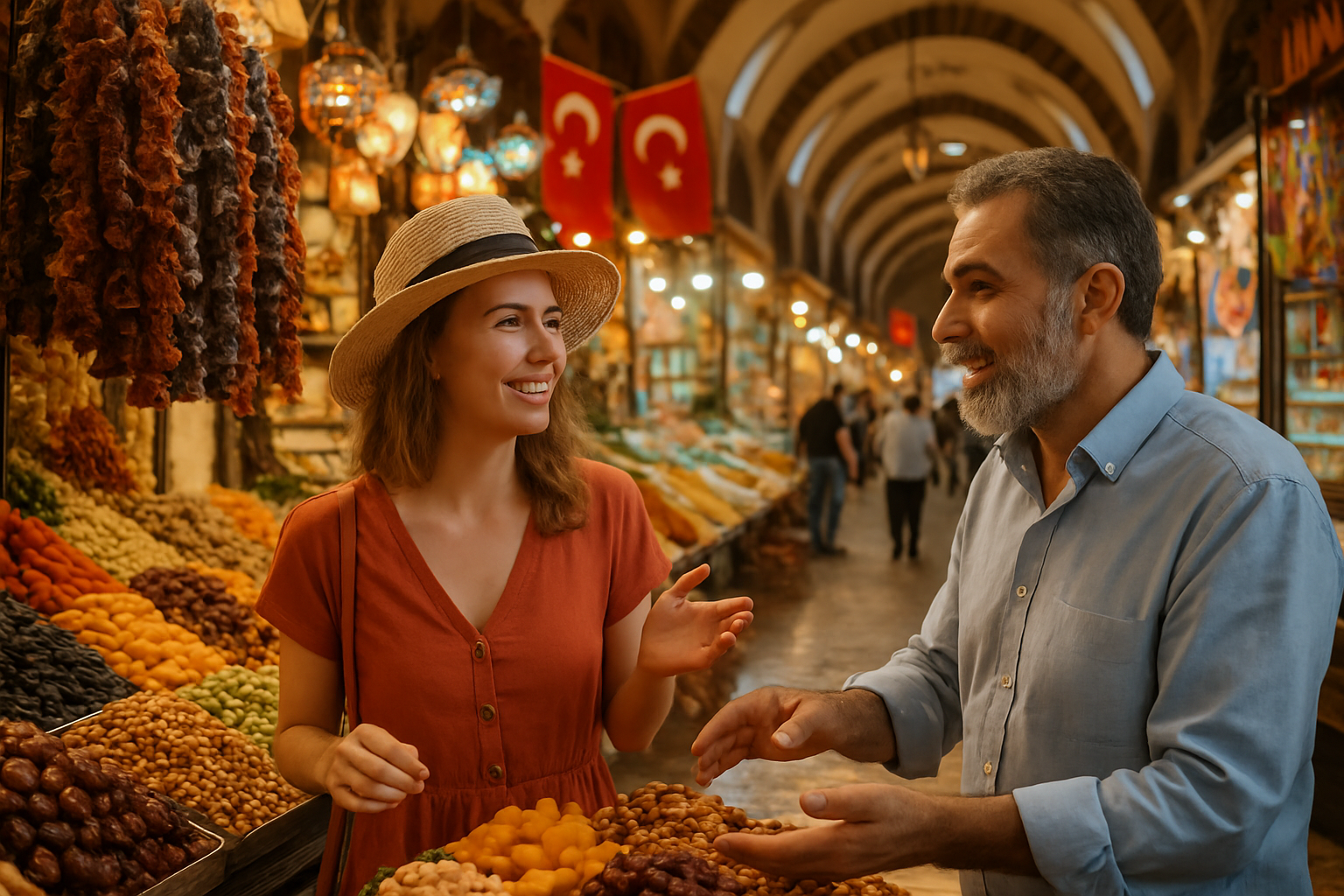Navigating Turkish Markets and Bazaars

Relocating to Türkiye comes with a host of new experiences, especially for those seeking both comfort and authenticity. One of the biggest surprises for many expats is the vibrant world of Turkish markets and bazaars. While supermarkets might offer familiar brands and products, understanding how to navigate local markets opens doors to savings, fresher goods, and a deeper insight into Turkish culture. However, language barriers, new shopping etiquette, and the sheer energy of these spaces can be daunting at first. Here’s a practical guide to help expats feel right at home while making the most out of their market adventures.
Understanding the Turkish Bazaar Culture
Turkish markets, or “pazars” as locals call them, are much more than shopping venues. They serve as key social hubs where residents gather, exchange news, and maintain cherished traditions. Each district typically hosts its own weekly market, often named after the day it takes place—like “Salı Pazarı” for Tuesday.
- Vibrant displays of fruits, vegetables, cheeses, olives, and freshly baked bread
- Sections dedicated to clothing, textiles, household goods, and local crafts
- Vendors often offer samples, hoping for a friendly interaction or a quick chat
- Bargaining is expected and part of the experience, not a sign of disrespect
Take a cue from locals—start with small talk, ask about the origin of produce, and enjoy the slower pace. Even limited Turkish or a friendly smile works wonders.
Market Etiquette and Tips for Expats
For those new to Türkiye, adjusting to market customs rarely takes long. Respecting basic etiquette helps you blend in and enjoy the process more.
- Let vendors handle the produce: Picking up and squeezing fruits or vegetables is generally frowned upon. Instead, point or state your preference—local sellers pride themselves on selecting the best items for you.
- Cash is king: Most market stalls do not accept cards. Carrying a mix of smaller banknotes and coins avoids hassle and makes transactions smoother.
- Bring reusable bags: While some vendors offer bags, sustainability and convenience favor bringing your own sturdy bags or totes.
- Arrive early or late: Early visits promise the freshest selection, while arriving later may land you better prices as vendors clear stock.
These simple adjustments help bridge the cultural gap and lead to more successful and enjoyable trips.
Bargaining the Turkish Way
The concept of bargaining, or “pazarlık”, runs deep in Turkish markets. This practice often confuses newcomers, but with some practice, expats can save money and have a little fun along the way.
- Politeness first: A friendly greeting sets a positive tone. Try a simple “Kolay gelsin” (May your work be easy).
- Compare and contrast: Before purchasing, look around to gauge average prices for your items. This gives you a reference point for negotiations.
- Offer a counterprice: Politely suggest a lower price, but remain fair and cheerful. The vendor may play along or decline, but it’s always a friendly process.
- Accept the outcome graciously: Sometimes, prices are fixed, especially for produce. Thank the seller and move on if you can’t reach an agreement.
Remember, bargaining is less about securing the lowest price possible and more about participating in a cherished ritual that forms connections.
Where to Find the Best Local Markets
Cities like Istanbul, Ankara, and Izmir boast an impressive variety of bazaars. Knowing where to go saves time and leads to better finds.
- Neighborhood pazarları: Smaller, weekly markets scattered across residential areas; ideal for fresh produce and mingling with locals
- Grand Bazaars: Larger, historic sites such as Istanbul’s Kapalıçarşı; famous for carpets, antiques, jewelry, and spices
- Organic markets: Increasingly popular in urban areas, these offer certified organic and artisanal products
- Seasonal markets: Specialty markets appear during holidays or harvest seasons, showcasing unique, limited-time goods
For expats, local neighborhood markets often offer the most rewarding and budget-friendly experience, plus the chance to establish relationships with regular vendors.
Making the Most of Your Shopping Experience
Shopping at Turkish markets is not just about groceries. The experience brings a range of practical benefits to expat life.
- Access fresher, seasonal fruits and vegetables at lower prices
- Discover regional specialties like fresh white cheese, dried apricots, and homemade jams
- Enhance Turkish language skills and confidence through real-life interactions
- Reduce plastic and packaging waste by buying unpackaged and in bulk
- Connect with vibrant community life, making new friends and contacts
Try different vendors for specific items—for example, one stall may specialize in nuts, another in olives or herbs. Sampling and comparing ensures the best quality, especially for special occasions or everyday cooking.
Adapting to Turkish markets empowers expats to lead richer, healthier, and more connected lives. With open-mindedness and a bit of practice, these bustling bazaars become vibrant extensions of your new home.
